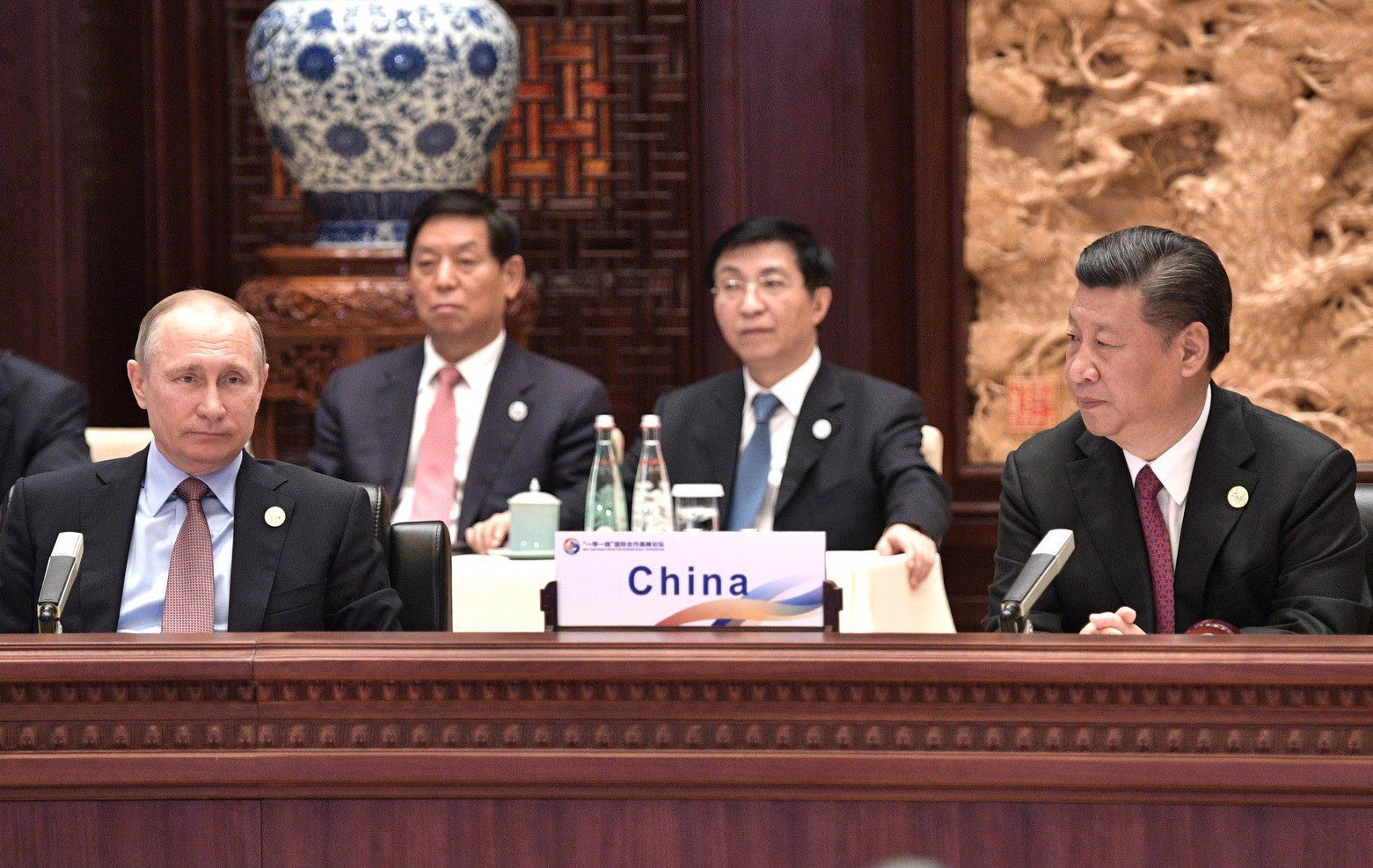China is a serious rival to the United States, as demonstrated by a recent hypersonic missile test, but war in the Pacific will not solve America’s problems.
The Twitter barbs wrote themselves: While U.S. generals dabbled in critical race theory and fretted about nail polish online, China tested a nuclear-capable hypersonic missile that careered around the earth before cruising toward its target, striking within two-dozen miles of it. The weekend test left the American national-security apparatus baffled and embarrassed.
“The test showed that China had made astounding progress on hypersonic weapons and was far more advanced than U.S. officials realized,” noted the Financial Times, which broke the story over the weekend. Hypersonic missiles of this kind whiz through the air at five times the speed of sound, or about 3,850 miles per hour. Their lower altitudes and cruising capabilities pose a different sort of challenge to missile-defense systems than do traditional ballistic missiles, which by definition follow a more predictable path from launch to target.
It was yet another warning, if one were needed, that the People’s Republic is a very serious power, indeed.
Our own national-security apparatus is downright farcical by comparison. Its leaders guided the United States into a strategic ditch, squandering blood and treasure on pointless nation-building wars whose sum effect was to further destabilize an already-volatile Middle East and North Africa. What with Gen. Mark Milley, the chairman of the Joint Chiefs of Staff, blabbering about “white rage,” and another general, Jo Clyborne, griping on Twitter recently about the Army’s policy against French manicures, our military brass and “nat-sec” elites deserve all the ridicule they get, and then some.
But on the right, especially the so-called new right, the mockery can often go hand-in-hand with a perilous temptation: a mindless China hawkishness that would do little to reverse the underlying trends driving American decline (both relative and absolute). If anything, such hawkishness could allow GOP foreign-policy elites to derail any hope of a populist-led domestic revival. Instead, they would channel popular anger—over Covid, industrial offshoring, elite entanglement with Beijing, and so on—into another generation of dumb conflicts. China could thus serve as a great red herring (pun intended).
Instead of asking why, for example, the United States doesn’t build its own semiconductors, we could end up committing extraordinary resources to defending imperial outposts that are ultimately indefensible, such as Taiwan, which, I’m sorry to have to say, is part of China’s civilizational sphere and will be reabsorbed sooner or later.
Instead of holding domestic elites accountable for rendering U.S. supply chains utterly vulnerable to external shocks, we could end up electing China hawks who would, at best, gesture lamely at shoring up manufacturing in the homeland.
Instead of confronting head-on our own polarization and internal ideological incoherence, we could make of Beijing another total enemy to mobilize the Forces of Democracy and Freedom, as the hawks and liberal internationalists would have it; this, even as the same ruling elite continues to national-securitize dissent, probing parents who object to CRT in schools.
This isn’t to say that Washington should seek to accommodate China in every way and at every step. The populist right should by now have learned to shrug off the D.C. hawks’ tendency to reduce every geopolitical question to a 1930s-style choice between appeasement and courageous war-making. By all means, we should punish intellectual-property theft and industrial espionage and continue to seek a more balanced trade relationship. By all means, we should uphold existing treaty obligations in the Pacific, not least by maintaining credible deterrence. And by all means, let’s squeeze U.S. elites who profit off China-entanglement while lecturing U.S. workers on wokeness.
My point, rather, is that Americans should ask whether our (undeniable) decline vis-à-vis China—evidenced by the fact that the hypersonic test apparently took our “intelligence” community by surprise—is rooted mainly in internal or external factors.
If the contradictions have mainly internal roots, then a ferocious external policy can only serve to paper over them, without fundamentally resolving them. Not that China is without its own contradictions. But your average D.C. China hawk thinks screaming “Xinjiang” and “Umbrella Movement” amounts to a penetrating critique. Meanwhile, China’s strategists are attuned in a much deeper way to America’s internal crises, as well as to their own.
Witness Wang Huning, the top Communist Party intellectual brilliantly profiled by N.S. Lyon for Palladium magazine. A former university professor who left academe to join the Politburo Standing Committee, Wang is the author of the 1991 book America Against Itself, based on his travels in the United States. In Lyon’s able summary, Wang describes America as a society racked by
deindustrialization, rural decay, over-financialization, out of control asset prices, and the emergence of a self-perpetuating rentier elite; powerful tech monopolies able to crush any upstart competitors operating effectively beyond the scope of government; immense economic inequality, chronic unemployment, addiction, homelessness, and crime; cultural chaos, historical nihilism, family breakdown, and plunging fertility rates; societal despair, spiritual malaise, social isolation, and skyrocketing rates of mental health issues; a loss of national unity and purpose in the face of decadence and barely concealed self-loathing; vast internal divisions, racial tensions, riots, political violence, and a country that increasingly seems close to coming apart.
America’s ruling classes might have many of these crises on their radar, Wang argues, but in the end they can only offer one-off techno-scientific tweaks that don’t get to the bottom of the problem: “a radical, nihilistic individualism at the heart of modern American liberalism.” In other words, we have a profound political problem on our hands with no easy fixes, if any. But meanwhile, for the love of God, let’s stop blustering about saving democracy in Taiwan and Hong Kong.

